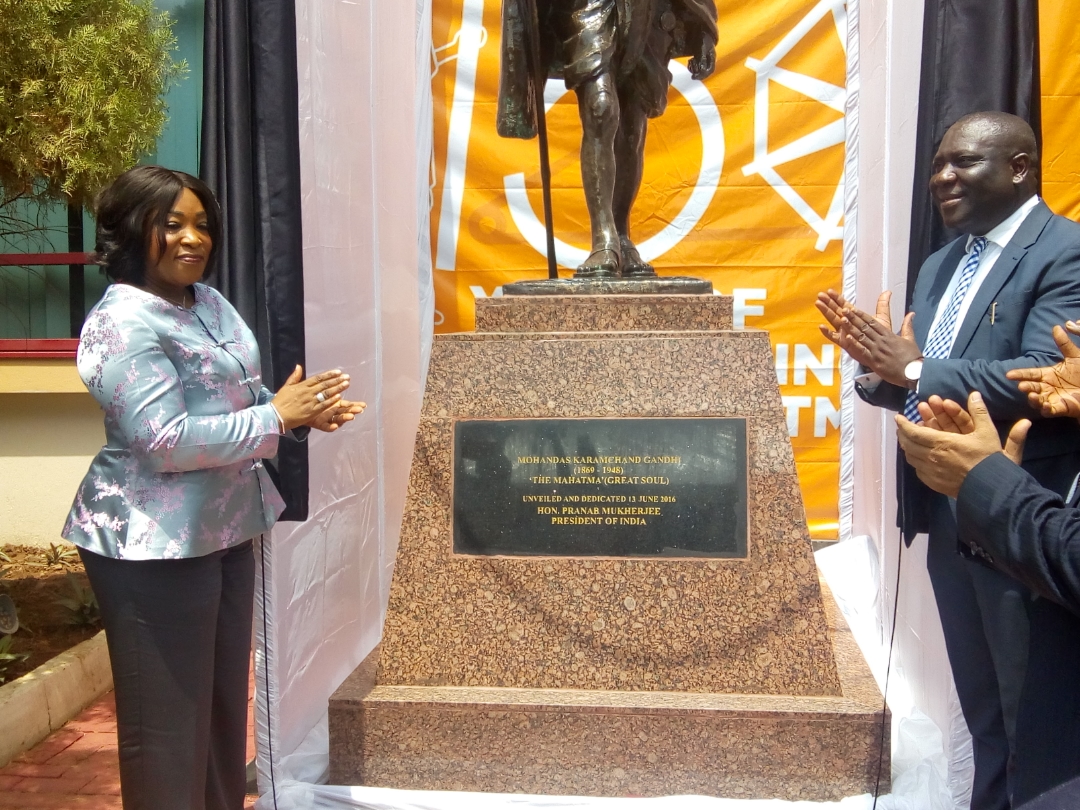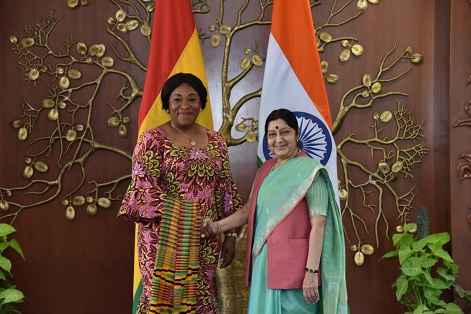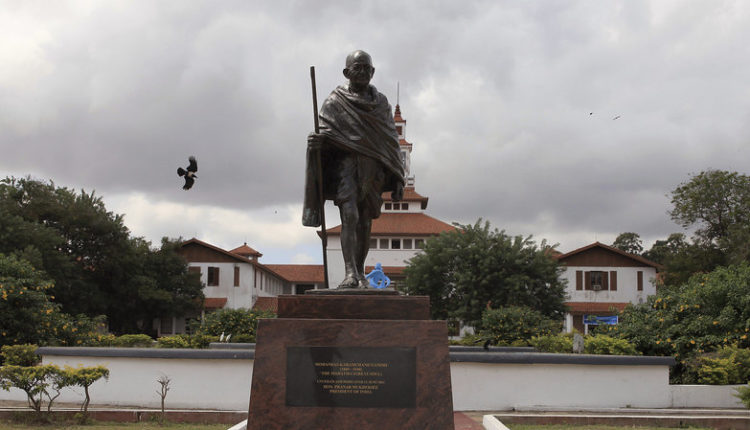Citi News’s Nathan Quao examines the saga surrounding the Mahatma Ghandi statue in Ghana and points out the diplomatic tightrope government must walk on handling the situation.
Diplomacy, to most governments, is the usual soft talk that happens when state and non-state actors meet to discuss trade deals, agreements, aid and a lot of the topics which never cause much friction and leave everybody at the cocktail really pleased with themselves.
Well, it is usually the case with diplomacy. It is an area where a lot of sweet talking is needed to make things happen because it is, in the purest sense, an art of managing the relationship among nations.
But there are the tough times when governments are faced with either bending to suit another government or a development partner or sticking with the people who have handed them the reins of power.
The Government of Ghana is at such a junction over a statue of Mahatma Gandhi.
Most people may not know of this and they may not be bothered. After all, it does not have an impact of the price of porridge or coconut or kenkey and fish.
However, the evolution of this matter could leave the Government of Ghana in a very uncomfortable corner.
In 2016, a statue of Mahatma Gandhi was erected on the campus of the University of Ghana but a huge wave of reactions from the academic community led to its removal.
What at all had Gandhi done to offend the lecturers?
It turns out that Gandhi spent 21 years of his adult life in South Africa as a lawyer and he represented the interests and rights of his fellow Indians there.
He, like all other people of colour, got racially abused very often but, per several sources, he himself was an affliction to certain people.
He disliked Black South Africans and his feelings about them did not stay internal.
Several quotes have been attributed to him in which he describes Black people as “Kaffir”- a slang used to describe black South Africans way before the era of apartheid and to highlight just how upsetting that name was and still is, a South African woman, Vicki Momberg, was sentenced to a 3-year jail term in 2016 for referencing black South African policemen using the same word.
Momberg was said to have described Black people as being “useless” and even behind bars, she was charged on two separate occasions for verbal abuse.
Quite some context, isn’t it?
Ok, so back to Ghana.
Where is the statue now? It is at the Kofi Annan Centre of Excellence for ICT; an edifice built with funds from the Indian Government.

That should end the matter, right?
Gandhi’s statue finds itself on a property funded by his country’s rupees. That should close things out for all of us but no.
The academics are still unhappy and they do not want Gandhi anywhere near Ghana and perhaps Africa.
They believe that Gandhi, whether dead or alive, whether in flesh or in stone, should not be given prominence by people he openly disliked and disrespected.
Fair argument there.
So what does the government do? How is this conundrum going to be fixed?
The first step is to understand all the various arms and legs of this saga.
First, the academic and human rights arguments which are being pushed by the academics. That case is watertight and heavily grounded on principle, intelligence and history and not a lot can defeat these three friends.
The other side of the coin is the diplomatic one and government cannot run away from this.

Over the years, India has become one of Ghana’s good friends. A shared history of being former British colonies and by extension, the Commonwealth, has created a relationship that will last for a long time.
Very recently, in 2018, the Ghana-India Trade and Advisory Chamber (GITAC) was set up to promote (more like enhance) relations between the two countries in the area of trade, investment, and culture.
That is the latest of initiatives, be they formal or informal, to exist between Ghana and India and if Ghana’s foreign policy is analysed under President Akuffo-Addo, there is no way that this friendship will end because of Gandhi and his statue.
It is not because the government is oblivious to the furore and the reasons for it.
Ghana will keep its friendship with India because of diplomacy and the past, present and future benefits therein.
This government’s foreign policy principles of good neighbourliness and a respectable standing in the international system will guide government’s future decisions in relation to Gandhi and the move to relocate the statue to the Kofi Annan Centre of Excellence in ICT is a great demonstration.
The Government will just have to brace itself for more reactions from the academics. They will come armed and determined to have their way.
Government must not seek to fight them because there will be no victory on that battlefield.
Government must rather concede to their having a point but it must also state that the diplomatic dance with India must happen because that is what transpires at the level of governments which see themselves as friends.
It is a key part of the toolkit in this post-Cold War global structure and for nations who are trying to make their way especially without the buffer of economic wealth and military resources, being nice keeps you going.
Ghana needs to be polite and downright smart with India because it is the only route left to take in this maze.

When all of this settles down though, I hope the lesson will have been learned by Government especially the Ministry of Foreign Affairs.
Nothing needs to be done amiss anymore for every single action or inaction has a diplomatic consequence.
And when the dominoes start falling, you will need to bark sometimes. At other times, you will need to speak.
On that odd occasion, you will need to dance with everyone involved until their tired and want to sit and mind you, you may not even enjoy the music too.
And now that we are faced with the music of Gandhi’s statue, it is time to dance with the Indians while we sheepishly look at the academics who will be seething at their table in justified rage.
Columnist: Nathan Quao
The writer has an MA in International Affairs and Diplomacy from the Legon Centre of International Affairs and Diplomacy.


Comments are closed.